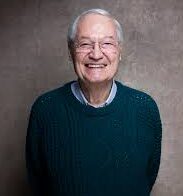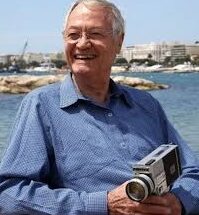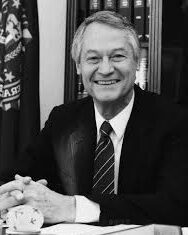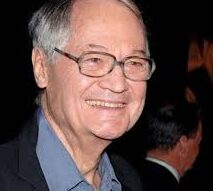
Legendary B-movie king Roger Corman, who directed and produced hundreds of low-budget films and discovered such future industry stars as Jack Nicholson, Martin Scorsese, and Robert De Niro, has died. He was 98.
Corman died on May 9 at his home in Santa Monica, Calif., surrounded by family members, the family confirmed to Variety.
“His films were revolutionary and iconoclastic, and captured the spirit of an age. When asked how he would like to be remembered, he said, ‘I was a filmmaker, just that,’” the family said in a statement.
Corman’s empire, which existed in several incarnations, including New World Pictures, and Concorde/New Horizons, was as active as any major studio and, he boasted, always profitable. He specialized in fast-paced, low-budget genre movies — horror, action, science fiction, even some family fare — and his company became a work-in-training ground for a wide variety of major talents, from actors like Nicholson (“Little Shop of Horrors”) and De Niro (“Boxcar Bertha”) to directors like Francis Ford Coppola (“Dementia 13”) and Scorsese (“Boxcar Bertha”).
When Corman was awarded an Oscar at the AMPAS’ first Governors Awards ceremony in November 2009, Ron Howard saluted him for hiring women in key executive and creative positions, as well as for giving them significant roles, and Walter Mosley was quoted as saying Corman offered “one of the few open doors,” looking beyond age, race, and gender.
Corman hailed film as “the only truly modern art form.” But he pointed out that the need for cast and crew payments means a constant compromise between art and business.
Howard also joked that when he directed his first film, “Eat My Dust,” he complained to Corman about the low budget and the sparse extras for a crowd scene, only to be told, “If you do a good job on this film, you won’t ever have to work for me again!”
Quentin Tarantino toasted him with “the movie lovers of planet Earth thank you.” Jonathan Demme praised his acting, saying Corman gave “tremendous value at a really affordable price.” In several movies for Demme, Corman wanted the same fee he gave actors in the 50-plus films he’d directed: scale plus 10%.
Over almost half a century, he took over the B-movie market, which had largely disappeared in the wake of television, and kept it alive almost single-handedly (along with Sam Arkoff of American Intl. Pictures, who financed most of Corman’s early directing/producing efforts). Well into his nineties, he was producing Bs for $5 million and under and rolling them out for video and television release. Roger Corman
After he stopped directing in the late ’60s (only briefly returning in the mid-’80s with “Frankenstein Unbound”), he established New World Pictures, which also imported foreign art films like Ingmar Bergman’s “Cries and Whispers” and revolutionized the industry’s approach to effectively marketing and distributing such highbrow films.
Corman, born in Detroit, relocated with his family to Los Angeles in 1940. He attended Beverly Hills High School before pursuing engineering at Stanford University. His passion for movies blossomed early, deeply influenced by the cinematic environment of California. “There was no way I couldn’t be interested in movies, growing up where I did,” he once remarked. Roger Corman
Corman’s service in World War II and his academic pursuits, including a term at Oxford University where he studied English literature, temporarily diverted his focus. After completing his education at Stanford, he briefly worked at U.S. Electric Motors for four days before attempting to enter the film industry by taking on a messenger role at 20th Century Fox. Following his return from Oxford and a brief stint in Paris, he described himself as “a bum.” Between 1951 and 1953, he took on various odd jobs and relied on unemployment benefits. Eventually, he worked as a script reader but soon felt he could produce better work himself. This conviction led him to write “Highway Dragnet,” which he sold to Allied Artists for $4,000. Roger Corman
Read More










